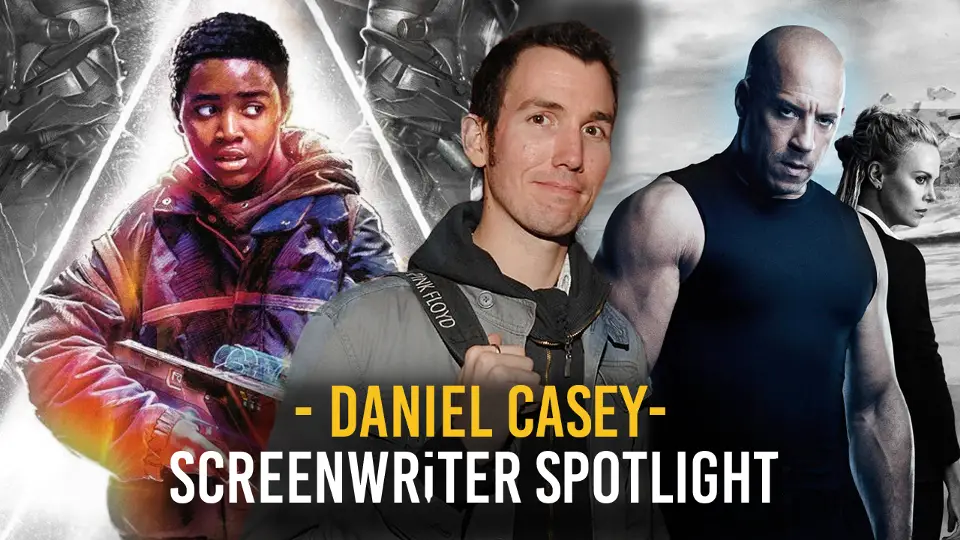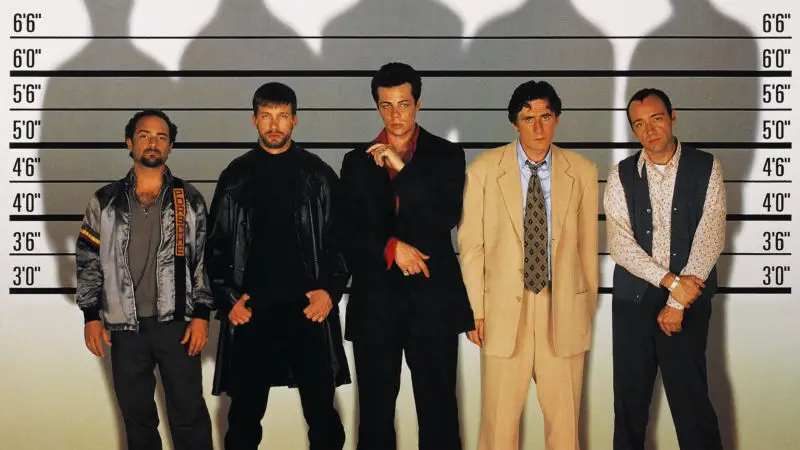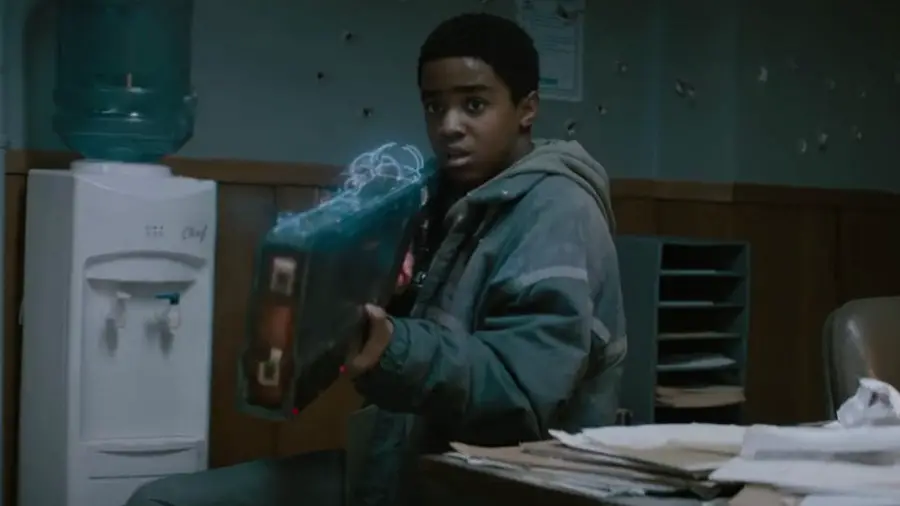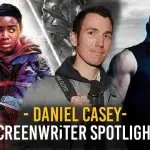Screenwriter Spotlight: Daniel Casey

Welcome to Spotlight: a series in which the team at Full Circle interviews talent in the Film/TV industry, giving insight on their journey into their profession. The second edition will spotlight a screenwriter who is about to make his blockbuster debut in a big way.
From doing uncredited rewrites on the majority of the 10 Cloverfield Lane script to writing the drama/science fiction hybrid Kin, Daniel Casey has worked in the entertainment industry on many sides of the table for years now. Last year, he was tapped to write the ninth installment in the mainline Fast & Furious franchise. We had the opportunity to speak to Casey about that, Kin, and everything in between.
Q: What got you into screenwriting?
DC: Necessity got me into it for sure. I’m from Michigan originally, and while a lot of talented filmmakers come out of that state, it’s pretty far removed from the commercial landscape of Hollywood. Which basically means basically that you wind up doing everything. Write, shoot, direct, edit… everything. As a little kid, and I started really young, the first step was stop- animation videos with action figures, the second step was improvised “movies” with family, the third step was the high school phase, which was pretty much all horror movies… and so in a super innocent way, the writing aspect was always there because it just came with the territory, albeit the most stripped-down version of it. I remember it was always a big part of the fun.
In terms of my actual “professional” start in screenwriting? To make a living? That came after I premiered this indie feature that I wrote and directed called The Death of Michael Smith at the Slamdance Film Festival in 2007. Getting into Slamdance was life changing. I got my first lawyer and my manager through the ordeal. It was the beginning of my career so many ways, coupled with getting into the Sundance Filmmaking Labs the following year. I remember at that point feeling like things were about to really take off on the directing front… but that’s when the markets crashed in 2008. I remember overnight that executive producers and other types of folk who were looking to invest in independent films just kind of all dropped smoke pellets and vanished. I wound up about a year later, in 2009, living really hand to mouth. I managed some part-time work tearing tickets at the Sunset 5, a really great movie theater on Sunset – but overall I was in a bad place. I remember defaulting on student loans, overdraft fees piling up, I lost my car after it died in the middle of the 101 and I wasn’t able to replace it, so I was living in LA without a car…
Not to make this too weepy! Because what happened next was my professional start. I remember having a big heart-to-heart with my manager Noah, who I’d met through Slamdance, and together we agreed to switch tactics. I’d been attaching myself as a director to everything I was writing up until that point, and with the economy in the gutter the way that it was, with opportunities for new directors scarce, this wasn’t helping my prospects. I had a script called Jimmy Six, and so my manager sent it around to the big agencies and to the town with my role in things listed only as “writer”. Lo and behold, that became the script that took off. Studios loved the script, I began taking meetings like crazy, Jimmy Six made the Hollywood Blacklist in 2010, and all of a sudden people were calling me a screenwriter. It’s bizarre how these things pan out. Honestly years later, I look back on it with a lot of pride.

Q: Which films have personally inspired you the most? Do you have a preferred genre or filmmaker?
DC: I love Michael Mann’s Thief, I love Terrance Malick’s The Thin Red Line, Bullhead for me is a more recent favorite, Amores Perros is a film I still recommend to anyone, LA Confidential and The Usual Suspects are films I watch at least a few times a year… 13 Assassins is a great example of stripped-down ensemble character work and tension, I think Misery is a film everyone should study… let’s see… The Battle of Algiers, City of God are a few others…
Q: You’ve worked on many sides of the table as director, producer, editor and of course screenwriter. How does the knowledge of these different disciplines help you in both screenwriting and filmmaking in general?
DC: That’s a flattering question! You make it sound as though I’m qualified in all those fields as well, but yeah- in terms of having experience across different sides of the process, having been an editor, having produced and directed in addition to screenwriting, I can say it’s very helpful in terms of writing. If only because of the fact that directing, producing and editing are so dependent on one’s ability to handle logistics. A director has to be a dreamer, sure… but they also have to know that they’ve only got so much time at a certain location, only so much money to build this or that set, this or that visual effect… if you’ve had experience dealing with the real-world limitations that come with filmmaking, it helps your ability to understand what others involved in a project are going through, and what might be too much or too little on the page. It’s always fun to live in a dreamscape and type away using only your imagination, but the producer, the director, the editor… these are the people that have to go out and turn your pages into a real thing. If you can speak their language, even a little, it’s massively helpful.
Q: How closely do you work with other members of the filmmaking process when working as a screenwriter?
DC: I personally try to work as closely with directors as possible whenever I can. There’s always the will-it-won’t-it-get-made question, so at the beginning of the process I’m always on my own for at least a few months as I write first, second and third drafts, but once a script reaches that exciting place where it looks like you’re going to get a green light, I try to huddle up with directors as quickly as possible. For example, on Kin, I got to love the Baker Brothers so much that even now, a year after the movie has come out, if I’m not regularly in touch with those guys I begin to feel a kind of weird anxiety, like I owe them pages or something. Ha. I’m working on Fast 9 now, we’re only a few weeks out from production start, and I’m literally with Justin Lin every single day. On working weekends too. It’s insane — but again, I wouldn’t have it any other way. My happy place is being as close as possible to the actual filming.

Q: What struck me the most about your most recent film, KIN, was the ability to naturally take a family genre and a hard sci-fi story into something completely new. How did you keep this unique balance of tone?
DC: With Kin, in terms of balancing the intimate family stuff with the heady science-fiction concept,I remember that the great thing about that project was the fact that the Baker Brothers had made this really awesome short film, one that premiered as SXSW, as a kind of starting point for what became the feature. So going in, I remember that our initial conversations were highly specific. I’d grown up having split my childhood between Detroit and Hamtramck (a city township within Detroit), which is where the first half hour of the movie is set – so there was an affinity in terms of place and texture that I had immediately. From day one, I knew exactly what type of characters and settings I was writing for. I knew how they dressed, how they looked, etc.
As for the science fiction stuff, I got to the fill the hardcore nerd space while writing. I kind of played the Encyclopedia Brown role in that creative dynamic along with the Bakers. I was raised on Star Trek TNG and DS9, I watched Voyager too — but moreover, I read a lot of science fiction as a kid. My dad put a copy of Frank Herbert’s “Dune” in my hands when I was about twelve years old. The Foundation Trilogy wasn’t long after that, and I’ve got extensive knowledge of the old Star Wars Expanded Universe books. So I can tell you what a Ferangi Marauder is, I know who Jacen and Jaina are, and personally I think Duncan Idaho is the coolest character in all of science fiction. I’m that much of a nerd, and I think this mish-mash of knowledge wound up being crucial, because what you get is me at like fourteen years old, going to pick up my little brother from daycare at the Friendship House or what-have-you, day-dreaming about science fiction battles while roaming the streets of Detroit and Hamtramck. Ha! It was like I’d spent my whole life waiting to write something like Kin. And you know I’m proud of the movie. We got to make something intimate and weird and original, not based on anything but our own ideas.
Q: As the newest creative voice in the Fast and Furious franchise, how much do you take inspiration from the writers who have come before you and how much do you blaze your own trail, so to speak?
DC: I definitely look a lot to the past films for cues. Yes. Especially as a fan of the series. Throughout writing Fast 9, I’ve been re-watching one through eight regularly – I’d say maybe every odd month or so, in and out of order, just to keep reminding myself about how these characters talk, move – it’s helpful too in maintaining the specifics of the heightened world that they’ve kind of come to inhabit… as long as I’m doing that – as long I’m not writing an installment in the series that feels like an island unto itself, that’s where I can kind of look to start injecting my own voice.
The best part of the writing process has been the fact that Justin Lin is coming back to direct this new one. Obviously I can’t go into plot details, but Justin started his run in the series with Tokyo Drift, which set up the larger world of the Fast series, and went all the way through Fast 6, which saw the characters move up into spy territory where they’re stopping bad guys from getting super weapons and stuff. So he’s overseen the evolution of these movies from smaller scale pictures into the massive blockbusters that they’ve become, he’s been the architect of all of that. And Justin’s very involved in the story, that’s how he likes to work. So having that wealth of experience to draw from as I write – it’s been invaluable.
Q: What was the transition like from writing something smaller scale like Kin and then moving to arguably one of the biggest blockbuster franchises around right now?
DC: Jarring! Ha. Not so much in terms of how I write or work creatively, but in the scale of everything happening around me. From what goes down on the page to just the number of people you wind up in meetings with – everything kind of quadruples in size. That can be a little stressful, but you get the hang of it pretty quick. And having access to a canvas this large, to be able to write stuff with such impressive scope and scale – it’s very rewarding. Filled with lots of bucket list moments.

Q: Do you have any advice for young filmmakers and screenwriters?
DC: The thing I stress the most is that it’s important especially while young to always be writing, shooting and editing. A filmmaker’s early years are the most crucial, and getting to the point where you’re as good at the raw craft as possible – before you go trying to jump into the Hollywood system and sell scripts and pitch producers and be a big shot or whatever, before you try any of that… focus on getting really, really good in your early years. Nerd out over the gear, learn to understand cameras, lenses, working with actors, the entirety of the post production process… copy your heroes, learn how to do it the way they do or did. Because when you have the working talent going in, the actual know-how – that’s the foundation you build a career on. Good things come along after that.
Once a young filmmaker has the craft part handled, then I recommend looking into a couple of things – Slamdance is a great festival to submit a super indie feature or short film to. So is Sundance, obviously, and definitely SXSW, Tribeca, Toronto, etc. We all know the good fests, and I’m an advocate for Slamdance especially as I know that the programmers of that festival are always specifically looking for new talent working on low-to-zero budget debuts. Young filmmakers should also look into filmmaking labs as well. I’m an alumni of both the Sundance Filmmaker Labs and the Film Independent Writing & Directing Labs — and I’d recommend applying to those as well. There’s also the Nicholl Fellowship for aspiring writers and The Hollywood Blacklist, which is worth checking out.
Once a young filmmaker has the craft part handled, then I recommend looking into a couple of things – Slamdance is a great festival to submit a super indie feature or short film to. So is Sundance, obviously, and definitely SXSW, Tribeca, Toronto, etc. We all know the good fests, and I’m an advocate for Slamdance especially as I know that the programmers of that festival are always specifically looking for new talent working on low-to-zero budget debuts. Young filmmakers should also look into filmmaking labs as well. I’m an alumni of both the Sundance Filmmaker Labs and the Film Independent Writing & Directing Labs — and I’d recommend applying to those as well. There’s also the Nicholl Fellowship for aspiring writers and The Hollywood Blacklist, which is worth checking out.
Fast and Furious 9 hits theaters May 22, 2020.

